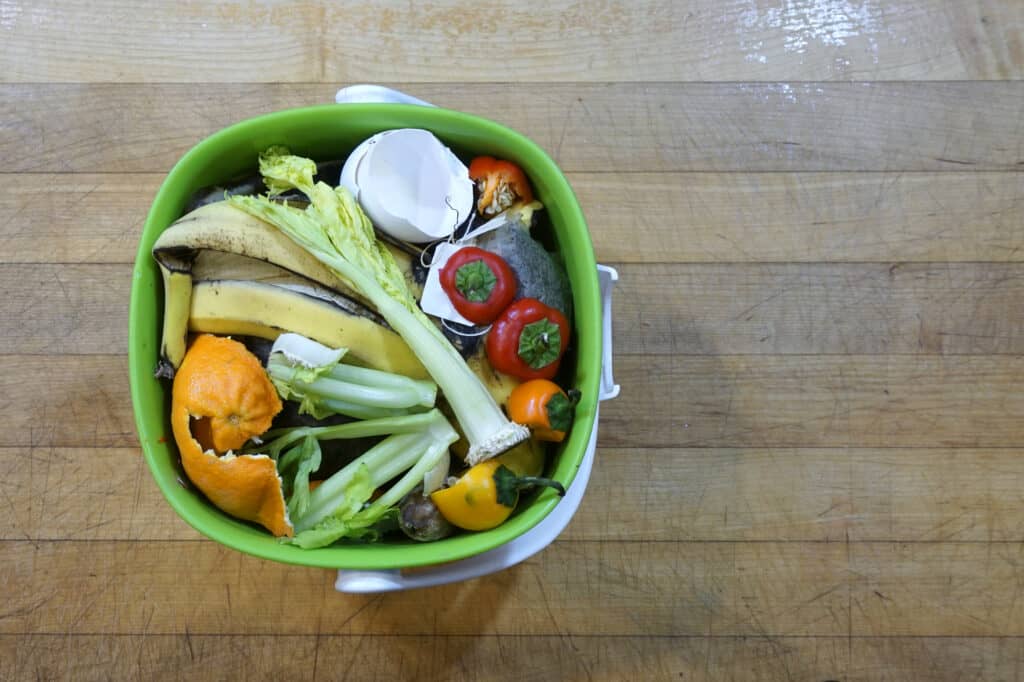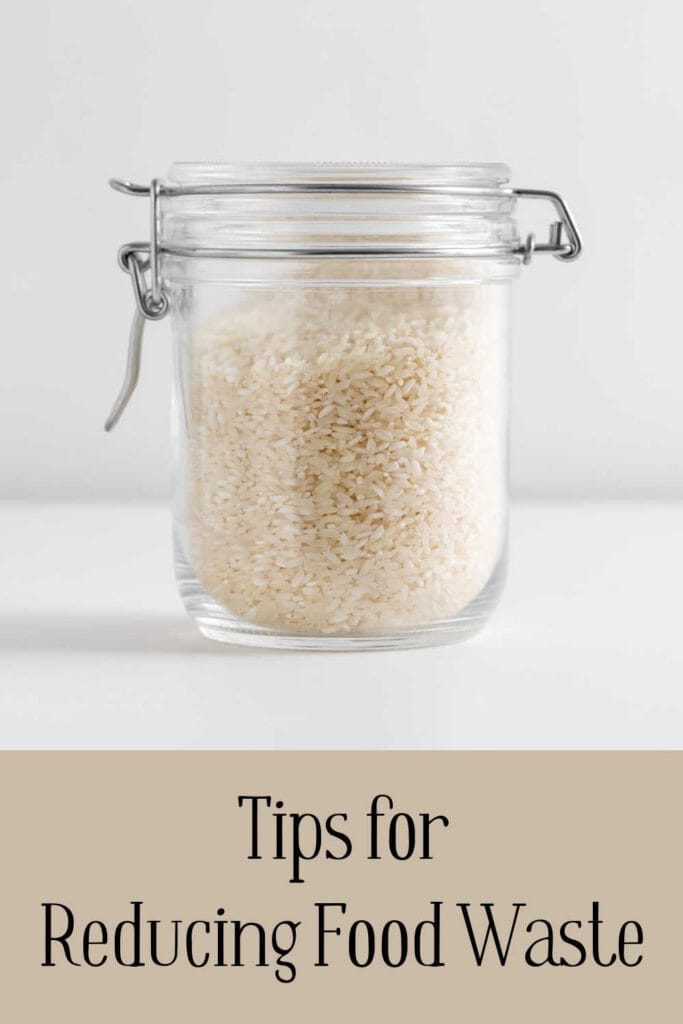Reducing food waste is not only good for the environment but also for your wallet.
Here are some tips to help you minimize food waste.
Plan your meals and make a shopping list
Create a weekly meal plan before going grocery shopping. This will help you buy only what you need and avoid purchasing items that may end up going to waste.
Based on your meal plan, make a shopping list of the ingredients you need. Stick to the list to avoid impulse purchases that could lead to excess food.
You can find meal planning tools to help you with this process.
Buy in bulk
While buying in bulk can save money, it’s only beneficial if you can use the items before they expire.
Be mindful of the shelf life and your consumption habits when purchasing in bulk.
Understand expiration dates
Familiarize yourself with the difference between “sell by,” “use by,” and “best by” dates.
Often, food is still safe to eat past these dates if stored properly (such as olives). Use your senses to determine if the food is still good rather than relying solely on dates.
Proper storage
Store food properly to extend its freshness. Use airtight containers, store fruits and vegetables in the crisper drawer of the refrigerator, and keep perishable items at the right temperature.
Organize, and first in, first out (FIFO)
When unpacking groceries, move older products to the front of the fridge or pantry and place newer items behind them. This ensures that you use the older items first and reduces the likelihood of them expiring before use.
Keep your food storage organized, so you know what you have on hand. Cluttered, disorganized spaces like a pantry will end up with forgotten items.
Use leftovers creatively
Repurpose leftovers into new meals to avoid throwing them away.
For example, turn leftover vegetables into soups or stir-fries, and use leftover proteins for sandwiches or salads.

Compost
Set up a countertop compost bin for fruit and vegetable scraps, coffee grounds, eggshells, and other compostable items.
A composting bin not only reduces food waste but also creates nutrient-rich soil for gardening.
Donate excess food
If you have non-perishable items or surplus fresh produce that you won’t use, consider donating them to food banks or local community organizations.
By implementing these tips, you can significantly reduce food waste in your household while saving money and contributing to a more sustainable environment.






Using your senses to determine when things are actually old is the best tip on here! Expiration dates are absolutely not accurate!
I’m a big fan of buying meat in bulk and freezing it. I have a vacuum sealer, so it really helps me freeze it without freezer burn.
Great article. My household is guilty of wasting food – I’m definitely implementing some of the practices today!
We have been prioritising this for a few years. When we first started, I was so shocked at just how much we waste. We are so much better now though!
Planning meals ahead and sticking to a shopping list not only saves time but also ensures we use what we buy without waste.
I really need to do a proper weekly meal plan so I am only buying what we need. I always make sure all our vegetables get used up – and I do try and use any leftovers for my lunch the following day.
Storage matters. I try to tell that to my kids all of the time, but they don’t always listen. Things last a lot longer if you store them/cover them the right way.
I love the tips, thank you so much…We started buying in bulk recently and it made the entire difference.
Great tips and tricks here for saving on food and ingredients. I like making sure to go through my pantry foods as well before a big shop and restocking accordingly. Nothing goes to waste!
These are some great tips. We do a lot of composting. We also have chickens and ducks, so they’ll eat some of the stuff so it doesn’t go to waste.
I need to keep these tips in mind for sure. I have been wanting to be less wasteful. I know I have been!
I spend most of my time at home in the kitchen, and I am always on watch with food waste and saving money for food. Thanks for sharing your thoughts about this.
Reducing food waste is crucial, and these tips offer practical ways to do so. I already follow many of these strategies and can confirm their effectiveness in not only cutting down on waste but also saving money and resources.
These are some helpful tips you shared. I agree Planning meals ahead and sticking to a shopping list can help in wasting food.
You have some impressive tips in this post to reduce food waste. I also strongly believe that avoiding impulsive purchases will definitely lessen food getting wasted. Thanks for putting this useful resource together!
Such great tips! I plan our meals every week for years now and never looked back. I make sure to eat all the leftovers too.
Loving these tips here and I do love to buy in bulk whenever possible. I want to get a food saver system to extend the life of my foods also plus I love the tip for understanding expiration dates as many things are still good even past them. I always gogle when in doubt and have many times been pleasently surprised. These crazy high food costs will have you looking for any ways to save.
These are great practical tips! With the increasing price of commodities, it is just right that we try our best to reduce our food waste. It’s about time we start being creative with our leftovers and perhaps repurpose them into a new dish.
This year, one of my resolutions is to avoid food waste at home. One of the ways I’m doing it is not cooking in excess.